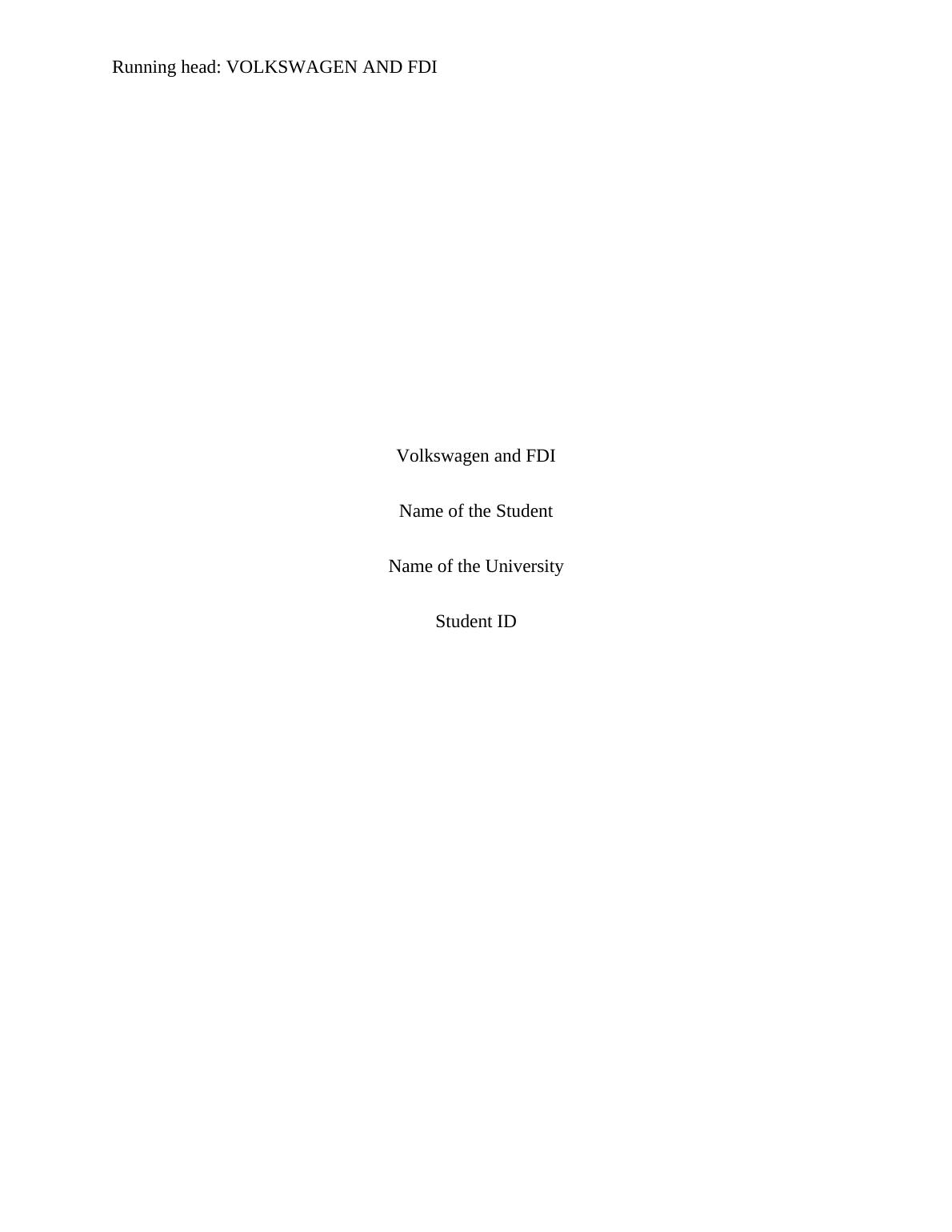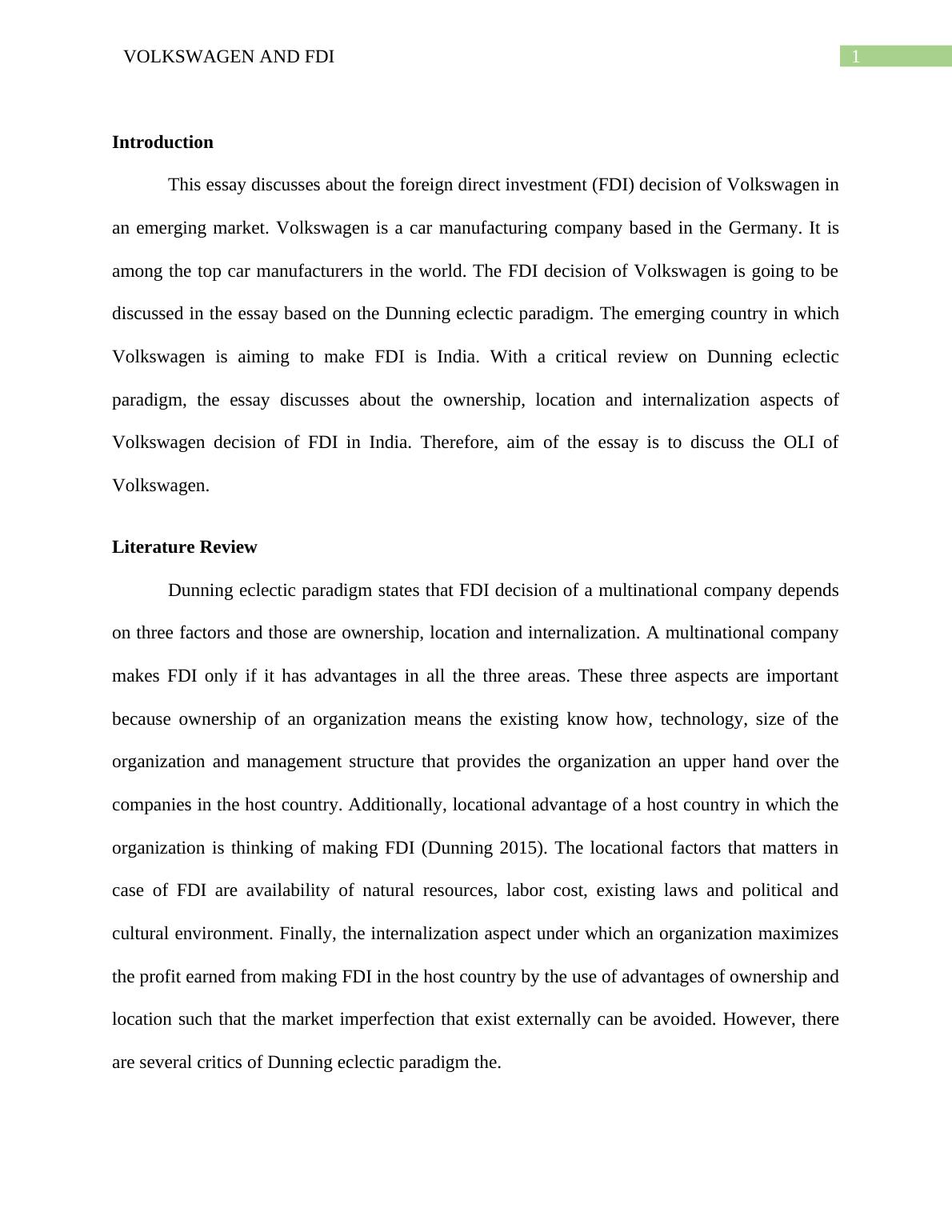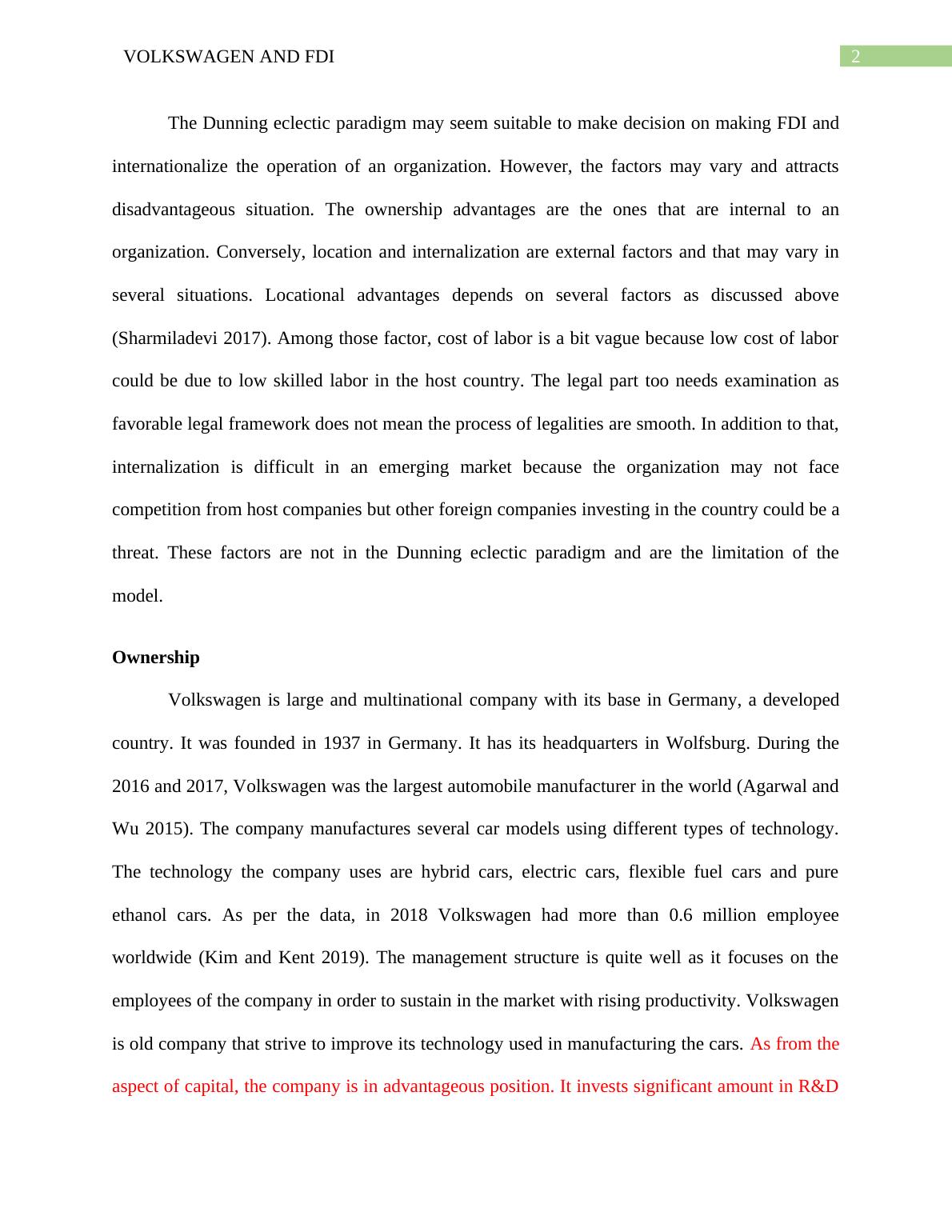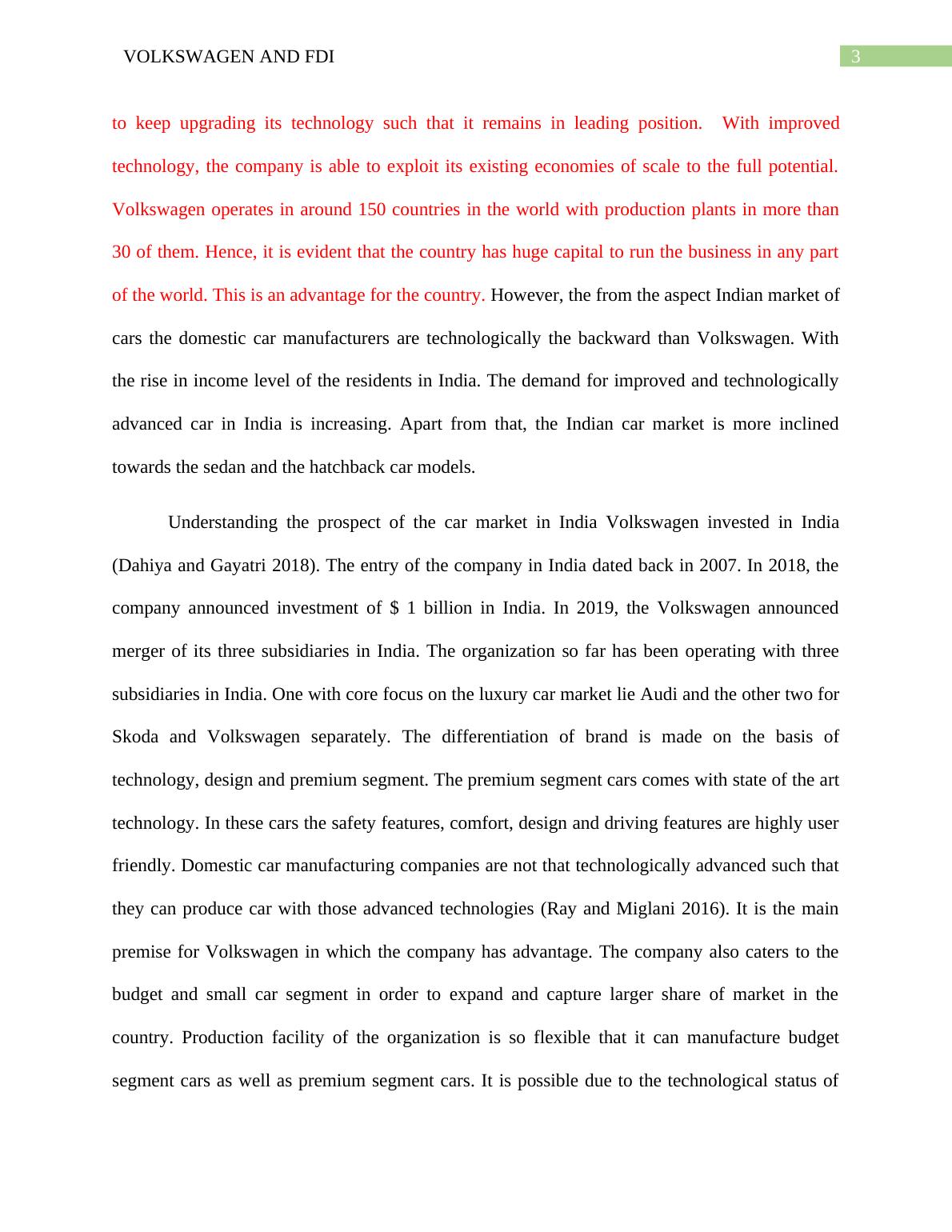Volkswagen and FDI | Essay
The assignment requires to use Dunning’s eclectic paradigm of OLI as the framework to critically assess the issues by using data and charts to support analysis: (1) How a chosen multinational of a developed economy manages FDI in a clearly identified emerging market (for example, Russia, India, China, Nigeria, or Brazil); or (2) How an emerging market MNC deals with FDI in a developed economy (EU or North America) or in emerging markets
Added on 2022-08-19
Volkswagen and FDI | Essay
The assignment requires to use Dunning’s eclectic paradigm of OLI as the framework to critically assess the issues by using data and charts to support analysis: (1) How a chosen multinational of a developed economy manages FDI in a clearly identified emerging market (for example, Russia, India, China, Nigeria, or Brazil); or (2) How an emerging market MNC deals with FDI in a developed economy (EU or North America) or in emerging markets
Added on 2022-08-19
End of preview
Want to access all the pages? Upload your documents or become a member.




